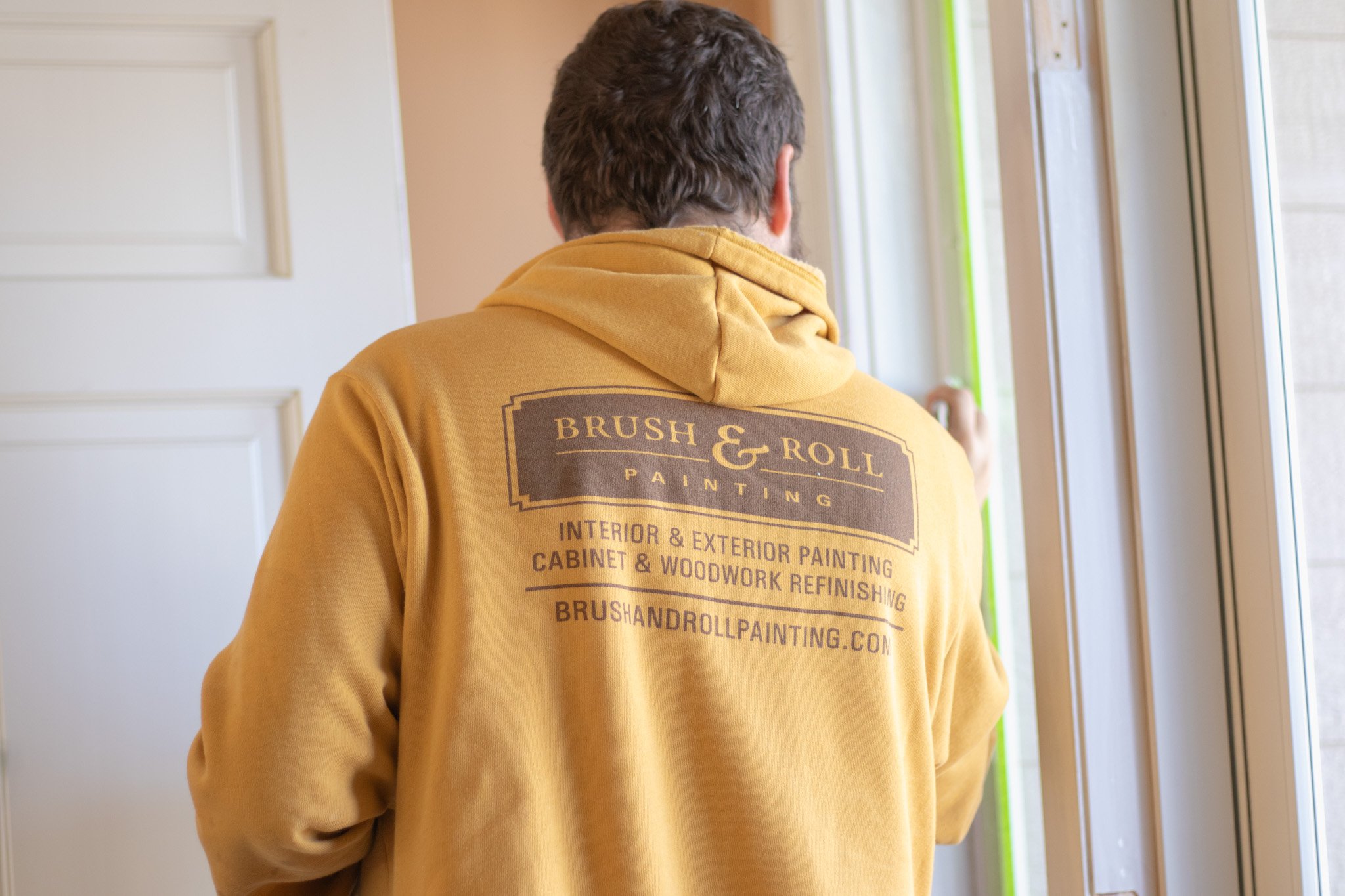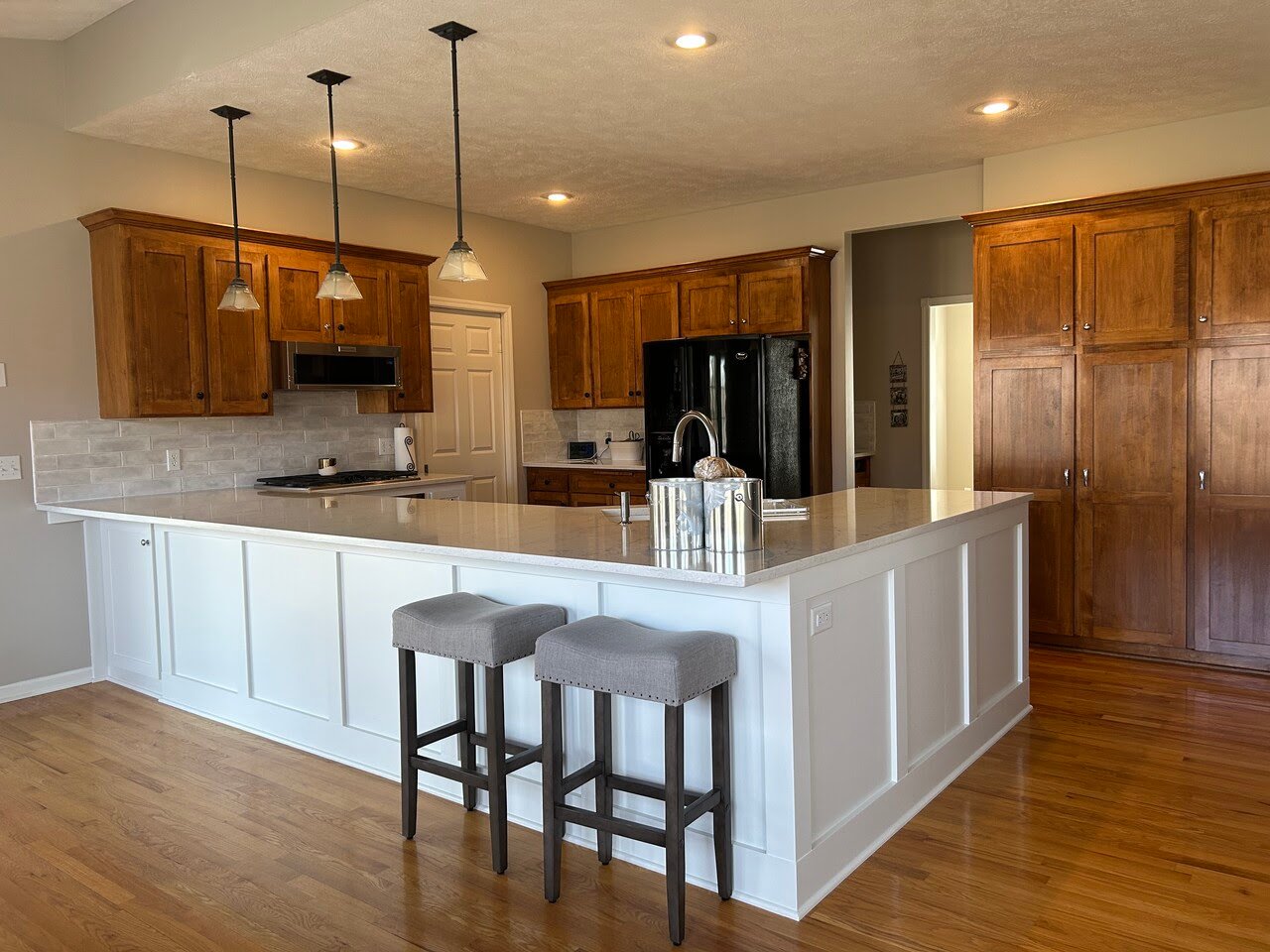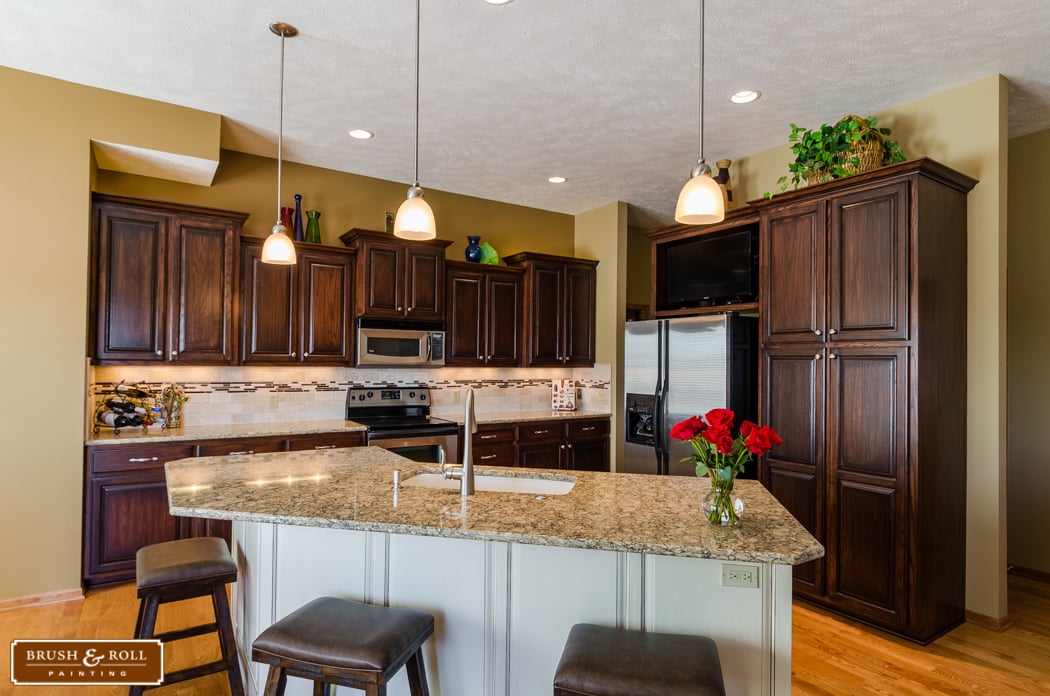Questions To Ask a Painter for Interior Home Painting in Omaha, NE
April 30th, 2025
6 min read

Getting your home painted—especially on the inside—can feel a little overwhelming. You want it done right. You want the colors to look good, the lines to be clean, and the finish to last more than a year or two. But where do you even start? You might already be juggling estimates from a few different painters in Omaha, and they all sound kind of the same. How do you know which one is the right fit for your home? What should you be asking them?
Let’s face it, hiring a painter isn’t something most people do very often, and when you do, you’re trusting them with something pretty personal: your home.
At Brush & Roll Painting, we’ve been painting homes across Omaha since 1996. We’ve met with thousands of homeowners and have answered just about every question you can think of. We also know that the best paint job starts long before a brush touches a wall—it starts with the conversation. We’ve seen firsthand how asking the right questions can make all the difference. Whether you hire us or someone else, we want you to feel confident about your decision.
In this article (and the video below), we’ll walk you through the most helpful and practical questions to ask when getting an interior painting quote in Omaha. These aren’t just to protect yourself—they’re to make sure you’re hiring someone who takes their work seriously. We’ll also explain what kinds of answers you should be listening for and why they matter. By the end of watching the video below and reading this article, you’ll have a solid checklist and a better idea of what separates a reliable painter from the rest.
1. “Are you licensed and insured?”
Why it matters: Painting companies working inside your home should carry liability insurance and workers’ compensation. This protects you in case anything gets damaged or someone gets hurt during the project.
What to listen for: A clear “yes,” followed by proof if you ask for it. If a contractor hesitates or brushes this off, it’s a red flag. Even small, local painting companies in Omaha should carry insurance—it’s not just for the big guys.
2. “How long have you been in business?”
Why it matters: Experience doesn’t always equal quality, but if a company has been painting homes in Omaha for 10, 15, or 25 years, they’re doing something right. It also means they’ve seen just about every type of wall, texture, and problem—and know how to handle it.
What to listen for: You’re not just looking for a number here. You want to hear about the kind of work they’ve done and the neighborhoods they’ve worked in.

3. “What’s your prep process like?”
Why it matters: Good prep is what separates a decent paint job from a long-lasting one. If a company skips or rushes this part, the paint won’t stick properly, and your walls could start showing issues in no time.
What to listen for: Look for details. Do they patch holes? Sand rough spots? Clean the walls? Tape edges carefully? Move or cover furniture? If their answer sounds too simple—like “We just start rolling”—you may want to keep looking.
At Brush & Roll Painting, we focus heavily on prep because we know it’s the most important part of the job. And honestly, it’s where most shortcuts happen in the industry.
4. “What kind of paint do you use?”
Why it matters: Not all paint is created equal. Lower-cost paints can fade faster, scuff more easily, and sometimes even smell worse. High-quality paint holds color longer and cleans more easily, especially in high-traffic rooms like kitchens, hallways, and kids’ bedrooms.
What to listen for: You want a painter who uses quality paint. Reputable brands like Benjamin Moore and Sherwin-Williams have great paints, but some of them are still low-quality. Make sure they list specific products from a reputable brand so you know exactly what they will use. If someone says, “We just use whatever’s cheapest,” that’s not what you want on your living room walls.

5. “How do you handle trim, ceilings, and edges?”
Why it matters: These are the spots that can make or break the look of a freshly painted room. Crooked lines, paint smudges on the ceiling, or uneven coverage on the trim are hard to unsee once you’ve noticed them.
What to listen for: Look for attention to detail. A professional painter should be using sharp lines, high-quality tape, and the right brushes for trim. Bonus points if they talk about sanding trim beforehand or using special paint for different surfaces.
6. “Will you be using a primer?”
Why it matters: Primer isn’t always necessary, but in many interior jobs—especially if you’re painting over a darker color or a glossy finish—it helps the topcoat stick better and look more even.
What to listen for: They should be able to explain when primer is needed and when it’s not. “We never use primer” or “we always use primer” aren’t necessarily great answers. It should depend on the surface and situation.
7. “Do you offer a warranty?”
Why it matters: A company that stands behind its work will usually offer some kind of warranty. That shows they care about the quality of their work even after they’ve packed up and left.
What to listen for: Ask what happens if something goes wrong, like peeling, bubbling, or cracking within the first year. A good painter should offer to come back and fix it at no cost, assuming it wasn’t caused by something outside their control (like water damage or major wall movement).

8. “Who will actually be doing the work in my home?”
Why it matters: Sometimes the person giving you the quote isn’t the one painting your home. That’s fine, as long as the crew coming in is experienced, trustworthy, and properly trained.
What to listen for: Ideally, you want a company that uses its own employees or at least long-time subcontractors they trust and work with regularly. If the answer is vague, or they say, “We just hire whoever’s available,” that could be a problem.
9. “How long will the project take?”
Why it matters: You don’t want painters in your house for weeks if the job could be done in a few days. At the same time, rushed work usually shows. The answer should show they’ve thought through your space, not just tossed out a random guess.
What to listen for: A good painter should know the scope (How many rooms? Any vaulted ceilings? Will you be home during the project?) before giving you a timeframe. This tells you they’re planning the job properly, not just trying to get it over with.
10. “What happens if something changes during the project?”
Why it matters: Sometimes, you might want to add a room, change a color, or realize you forgot to mention that patch behind the couch. How the company handles changes tells you a lot about their flexibility and honesty.
What to listen for: Look for a process. A painter should explain how change orders are handled, what it will cost (if anything), and how it affects the timeline. You don’t want surprises when the bill comes.
11. “Do you clean up each day?”
Why it matters: If you're living in the home during the project, you'll want to know that your space won't look like a construction zone at the end of every day.
What to listen for: Look for a company that says they clean up daily—putting away tools, throwing out trash, and keeping pathways clear. This shows respect for your home and your time.

12. “Can you provide references or reviews from past interior painting clients?”
Why it matters: Anyone can make their work sound good. But hearing from other Omaha homeowners who’ve had similar work done gives you peace of mind.
What to listen for: They should be happy to point you toward reviews or even share a few contact names from past jobs. Bonus if they’ve done work in your neighborhood or on homes similar to yours.
13. “How do you protect furniture and flooring during the project?”
Why it matters: You don’t want paint on your carpet or scratches on your hardwood. A professional should take this seriously.
What to listen for: You want to hear that they use drop cloths, plastic sheeting, and painter’s tape in the right places. They should also move (or help move) furniture out of the way, not just paint around it.
14. “How do you handle color consultations or samples?”
Why it matters: Choosing the right color can be tough. Some painters offer color help, others don’t. You want to know before the project starts.
What to listen for: If they don’t help with color selection, they should still be willing to paint a few sample swatches so you can see what it looks like in your lighting. Some painters even have color consultants or work with interior designers, usually for no additional charge, if you’re stuck.
Questions to Ask a Painter in Omaha
Choosing the right interior painter for your Omaha home starts with asking the right questions. You’re not just hiring someone to roll paint on a wall—you’re inviting them into your home and trusting them with the look and feel of the place where you live.
By asking the questions we shared here, you’ll be in a much better position to compare quotes, spot red flags, and find a painter who actually cares about doing the job right.
At Brush & Roll Painting, we’ve been helping Omaha homeowners make informed painting decisions since 1996. We use quality products, never skip the prep work, and treat every home like it’s our own. Click the button below to get a quote.
If you're in the middle of getting quotes or just starting to think about painting your home, it helps to have something in your hands that lays it all out clearly. That’s why we put together a free guide to hiring a painter. It covers the questions you should ask, what red flags to watch for, and how to compare estimates so you’re not just choosing based on price.
Whether you end up hiring us or someone else, this guide will help you feel more confident and prepared before letting anyone paint inside your home.
Kaylea is the Brush & Roll Painting Content Manager. Kaylea is a Journalism and Media Communications summa cum laude graduate with a minor in Marketing from the University of Nebraska at Omaha. Kaylea manages the marketing for Brush & Roll Painting.









.jpg?width=1280&height=721&name=Havens%20after%201%20(1).jpg)














